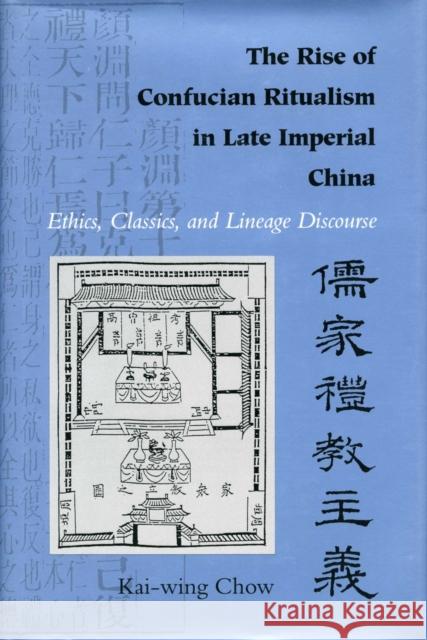The Rise of Confucian Ritualism in Late Imperial China: Ethics, Classics, and Lineage Discourse » książka
The Rise of Confucian Ritualism in Late Imperial China: Ethics, Classics, and Lineage Discourse
ISBN-13: 9780804721738 / Angielski / Twarda / 1994 / 356 str.
This pathbreaking work argues that the major intellectual trend in China from the seventeenth through the early nineteenth century was Confucian ritualism, as expressed in ethics, classical learning, and discourse on lineage. Reviews -Chow has produced a work of superb scholarship, fluently written and beautifully researched. . . . One of the landmarks of the current reconstruction of the social philosophy of the Qing dynasty. . . . Chow's book is indispensable. It has illuminating analyses of many mainstream writers, institutions, and social categories in eighteenth-century China which have never previously been examined.- --Canadian Journal of History -Chow's monograph moves ritual to center stage in late imperial social and intellectual history, and the author makes a powerful case for doing so. . . . Because the author understands the intellectual history of late Ming and Qing as the history of a movement, or successive movements, of fundamental social reform, he has also made an important contribution to social and political history as these were related to intellectual history.- --Journal of Chinese Religion -Chow's book is an excellent contribution to recent scholarship on the intellectual history of the Confucian tradition and provides a balance for other studies that have emphasized ideas to the exclusion of symbols.- --The Historian











